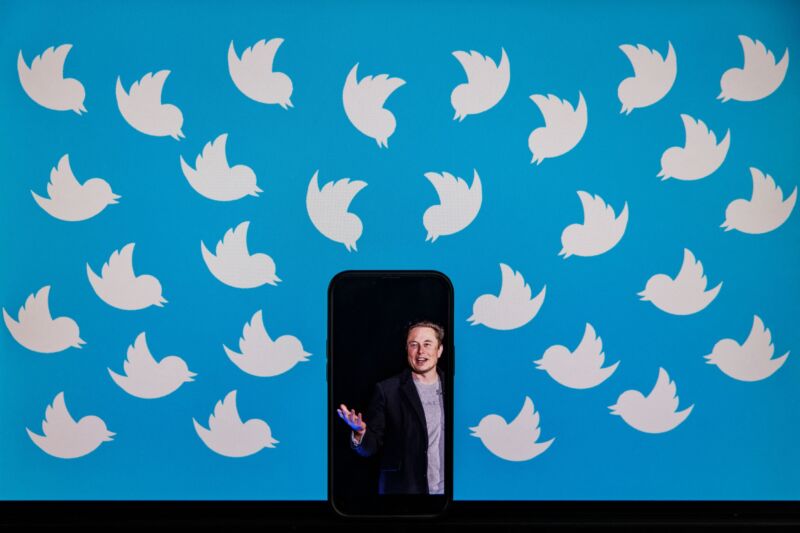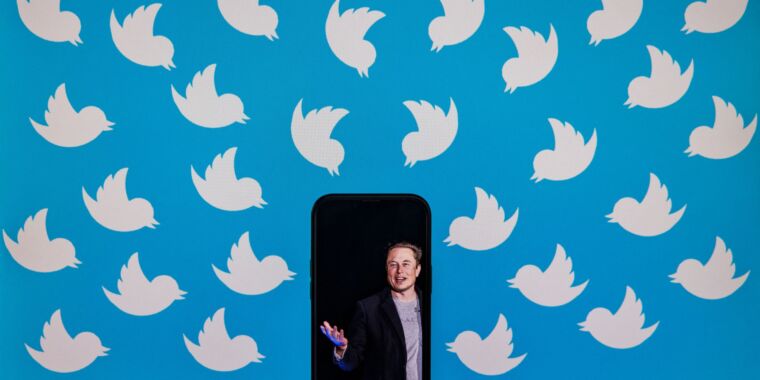
Getty Images | Samuel Corum
Update at 7:30 PM ET: Delaware Court of Chancery Judge Kathaleen McCormick granted Elon Musk’s request for a reprieve in an injunction giving the parties three weeks to negotiate and finalize the merger. The trial will not start on October 17 as planned and would be canceled entirely if the merger is completed by the end of this month. If negotiations on a deal fail, a trial is scheduled for November.
“This promotion is postponed to 5:00 PM on October 28, 2022 to allow the parties to complete the transaction. If the transaction is not completed by 5:00 PM on October 28, 2022, the parties will be instructed to contact me by email that evening to obtain trial dates of November 2022,” McCormick wrote.
Musk’s motion for a suspension said the merger is on track to close on Oct. 28. Twitter did not want the trial to be postponed. Plaintiff Twitter opposes the motion because Defendants’ agreement will not ensure the transaction is completed quickly enough, McCormick wrote.
Original story: Elon Musk criticized Twitter today for not immediately dropping the lawsuit against him and asked the judge to stay the case because “Twitter won’t accept yes for an answer.”
With Musk this week telling Twitter that he is once again willing to honor their original deal, the company, unsurprisingly, is seeking assurances that Musk will not break the merger contract again before agreeing to adjourn the lawsuit. Musk — who previously tried to delay the trial until 2023 — accused Twitter of not acting fast enough in a court his lawyers filed today:
Twitter won’t accept yes as an answer. Amazingly, they have insisted on going ahead with this lawsuit, recklessly risking the deal and gambling with the interests of their shareholders. Going to trial is not only a huge waste of party and court resources, it will undermine the parties’ ability to close the transaction.
The filing asks Delaware Court of Chancery Judge Kathaleen McCormick “to suspend this action and remove the October 17 trial from the Court’s agenda based on changed circumstances that effectively prompted this action.” Musk’s filing also said the merger is on track to close on or about October 28.
While a reprieve wouldn’t close the lawsuit, Twitter probably won’t cancel the planned trial date until it’s more certain that the merger will complete.
Musk mocks debt financing concerns
Debt financing is reportedly a sticking point in the negotiations. Musk’s letter to Twitter earlier this week said his offer to honor the original deal is pending receipt of debt financing.
Musk himself has pledged up to $33.5 billion. His filing said there will be no problems completing financing for the remainder of the $44 billion purchase price:
On the contrary, the counsel for the debt financing parties has advised that each of their clients is willing to perform its obligations under the Bank Debt Commitment Letter on the terms and subject to the fulfillment of the conditions set forth therein. We advised Twitter so, again to no avail. Not only has Twitter’s baseless speculation been refuted by the banks themselves, any theoretical claims Twitter could make up based on a potential financial failure that didn’t happen are immature and unsubstantiated, taking them far beyond the scope of the process that starts in eleven days.
Musk further claimed that continuation of the lawsuit would “send a signal to the market that – despite the defendants’ commitment to honor their obligations under the Merger Agreement and the Equity Commitment Letter – Twitter is demanding that the court monitor the progress of the lawsuit.” deal. Rather than allowing the parties to focus their attention on securing the debt financing needed to complete the transaction and preparing for a transfer of the business, the parties will instead distract continue through the completion of discovery and an unnecessary trial. In fact, a trial would keep the merger transaction in limbo for longer and cast an unnecessary cloud of uncertainty over the company.”
With a close on October 28, “shareholders would receive their payments much faster than would be possible if Twitter proceeded to trial and to winwin again on appeal, then proceed with funding and closing first,” Musk’s filing said.
Musk’s spam claims went nowhere
Musk agreed to buy Twitter in April, but later tried to get out of the deal by claiming the company was lying about the number of bots and spam accounts on the platform. Twitter sued Musk to force him to complete the purchase.
While Musk now accuses Twitter of “casting an unnecessary cloud of uncertainty over the company,” Twitter said in the lawsuit against him that the company faces problems caused by Musk’s public criticism and his attempts to break the merger agreement.
Defendants’ actions in departure from the deal’s completion, and Musk’s repeated disdain for Twitter and its staff, create uncertainty and delay that harms Twitter and its shareholders and deprives them of their rights. They also expose Twitter to adverse effects on its operations, employees and stock price,” the lawsuit said.
During the discovery process, Musk was apparently unable to obtain any substantial evidence to substantiate his spam claims, making it unlikely that he would be able to win in the process.

